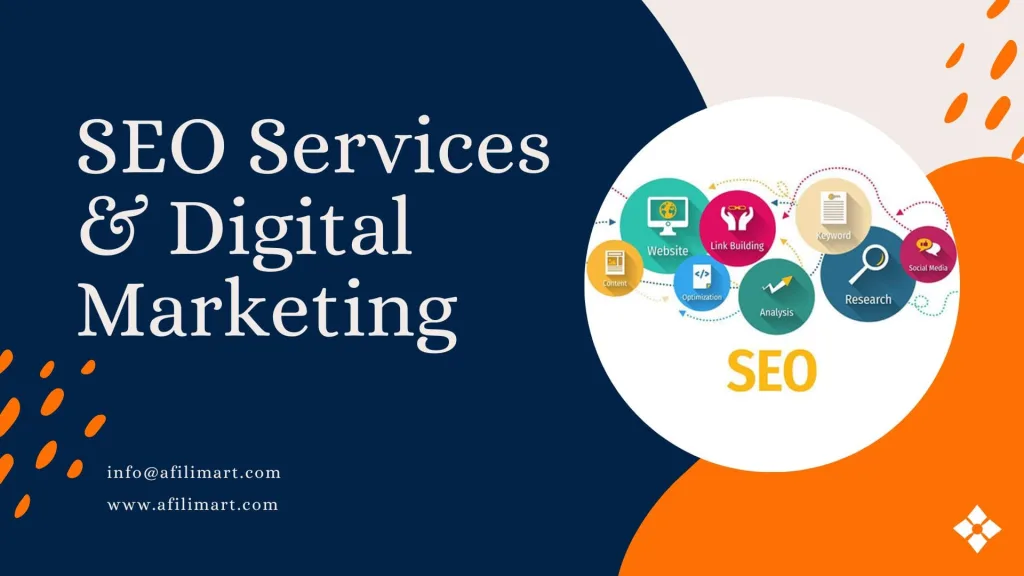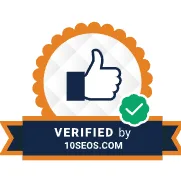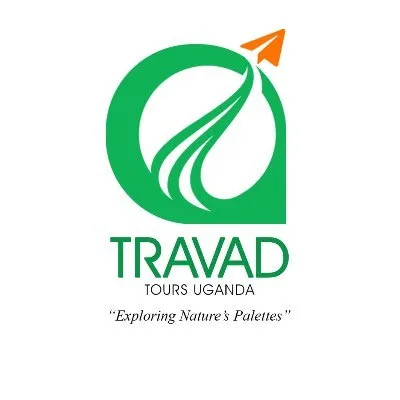Hey there! So, you’re thinking about diving into the world of affiliate marketing? Awesome choice! It’s one of the most flexible and potentially lucrative ways to make money online.
But before you start dreaming about those commissions rolling in, let’s chat about something super important: why you need a website for affiliate marketing.
Reasons for Having an Affiliate Marketing Website
- A Digital Home Base
- Building Trust and Credibility
- SEO: Getting Found on Google
- Control and Flexibility
- Showcasing Multiple Products
- Tracking and Analytics
- Monetization Opportunities
- Building a Community
A Digital Home Base
Imagine trying to run a business without a storefront. It’d be chaotic, right? A website is your digital storefront – it’s where people come to learn about you and what you’re offering. Sure, you can share affiliate links on social media or through email, but having a central hub gives you a professional edge.
Your website is where you can create and share content that attracts, engages, and converts your audience. It’s a place where you can build your brand and establish trust. Plus, it’s open 24/7, so your marketing efforts can work around the clock!
Building Trust and Credibility
Let’s face it – the internet is full of scams. When people stumble upon your affiliate links, they want to know they can trust you. A well-designed website with valuable content shows that you’re a legitimate player in the game.
Having a website lets you showcase your expertise and knowledge. You can write blog posts, create videos, or share testimonials and case studies.
This not only helps your audience but also boosts your credibility. When people trust you, they’re more likely to click on your links and make a purchase.
SEO: Getting Found on Google
One of the biggest perks of having a website is the potential to attract organic traffic through Search Engine Optimization (SEO). By optimizing your content for search engines, you can rank higher in search results, making it easier for people to find you.
Imagine someone searching for “best travel gear” on Google. If you’ve written a killer blog post on that topic and optimized it well, there’s a good chance they’ll find your site. And if you’ve got affiliate links in that post? That’s even better!
Control and Flexibility
When you rely solely on social media or other platforms, you’re at the mercy of their rules and algorithms. Remember when Facebook changed its algorithm, and suddenly nobody was seeing your posts? Frustrating, right?
With your own website, you’re in control. You decide what content to create, how it looks, and when it gets published. You’re not dependent on the whims of a third-party platform.
Plus, you can collect email addresses and build your own email list – another powerful marketing tool.
Showcasing Multiple Products
Affiliate marketing often involves promoting multiple products or services from different companies. A website allows you to showcase these products in a coherent and organized way.
You can create dedicated pages for product reviews, comparisons, and recommendations.
Think of your website as a curated gallery. Visitors can browse at their leisure, learn about the products you love, and click through your affiliate links when they’re ready to buy.
It’s a smooth, user-friendly experience that’s hard to replicate anywhere else.
Tracking and Analytics
To succeed in affiliate marketing, you need to know what’s working and what’s not. A website provides you with invaluable insights through tracking and analytics tools.
You can see how many people are visiting your site, which pages they’re spending time on, and where they’re clicking.
This data is gold. It helps you refine your strategies, optimize your content, and ultimately, increase your conversions. Without a website, you’re flying blind.
Monetization Opportunities
While affiliate marketing might be your main focus, having a website opens up additional monetization opportunities. You can sell digital products, offer consulting services, or even run ads.
It’s like having multiple revenue streams from a single platform.
For example, if you run a fitness blog, you can promote affiliate products like workout gear and supplements. But you can also create and sell your own workout plans, offer one-on-one coaching, or run ads from health-related brands.
The possibilities are endless!
Building a Community
One of the most rewarding aspects of affiliate marketing is building a community around your niche. A website provides a space where you can engage with your audience through comments, forums, and newsletters.
This sense of community fosters loyalty and trust. People come back not just for the products you promote but for the value you provide and the relationships you build.
And loyal followers are more likely to support your affiliate recommendations.
Conclusion: Your Website is Your Greatest Asset
In the ever-evolving world of affiliate marketing, having a website is more than just a good idea – it’s essential. It’s your digital home base, a platform to build trust, a tool for SEO, and a hub for showcasing products.
It gives you control, flexibility, and valuable insights. Plus, it opens up additional revenue streams and helps you build a loyal community.
So, if you’re serious about affiliate marketing, investing in a website is a no-brainer. It’s the foundation upon which you can build a successful and sustainable business. Ready to get started? Let’s do this!
FAQs About Having a Website for Affiliate Marketing
Do I really need a website to do affiliate marketing?
Yes, having a website is highly beneficial for affiliate marketing. It provides a central hub for your content, helps build trust and credibility, allows for better SEO, and gives you control over your marketing efforts.
While you can share affiliate links on social media and other platforms, a website offers numerous advantages that can significantly boost your success.
Isn’t social media enough for affiliate marketing?
Social media can be a valuable tool for affiliate marketing, but it shouldn’t be your only strategy. Social media platforms are great for engaging with your audience and driving traffic, but they have limitations.
Algorithms change, and your reach can be unpredictable. A website gives you stability, control, and the ability to optimize your content for search engines, providing a more reliable and scalable foundation for your affiliate marketing efforts.
How much does it cost to set up a website for affiliate marketing?
The cost of setting up a website can vary. Basic expenses include purchasing a domain name (around $10-15 per year) and hosting (which can range from $3 to $10 per month for basic plans).
If you choose a Content Management System like WordPress, you might also invest in themes or plugins, though there are many free options available.
Overall, you can start a basic website for less than $100 per year, though investing more can provide additional features and better performance.
What kind of content should I create for my affiliate marketing website?
Your content should be valuable, relevant, and engaging for your audience. This can include product reviews, comparison articles, how-to guides, and informative blog posts related to your niche.
The goal is to provide helpful information that attracts visitors and encourages them to click on your affiliate links. High-quality content not only builds trust but also improves your SEO, driving more organic traffic to your site.
How do I drive traffic to my affiliate marketing website?
Driving traffic to your website involves a combination of strategies:
- SEO: Optimize your content for search engines to attract organic traffic.
- Social Media: Share your content on social media platforms to reach a broader audience.
- Email Marketing: Build an email list and send regular newsletters with valuable content and updates.
- Paid Advertising: Use pay-per-click (PPC) advertising or social media ads to drive targeted traffic.
- Guest Posting: Write guest posts for other websites in your niche to attract their audience to your site.
How do I choose the right affiliate products to promote?
Choosing the right affiliate products involves understanding your audience and selecting products that align with their needs and interests.
Look for products with good reviews, competitive commissions, and reliable affiliate programs.
It’s also essential to promote products you genuinely believe in, as authenticity helps build trust with your audience.
Can I use a free website builder for affiliate marketing?
While free website builders can be tempting, they often come with limitations such as ads, limited customization options, and potential issues with SEO.
Investing in a self-hosted website with a custom domain provides more flexibility, control, and a professional appearance. It’s a worthwhile investment for serious affiliate marketers.
How do I measure the success of my affiliate marketing website?
You can measure the success of your affiliate marketing website using various metrics:
- Traffic: Monitor the number of visitors to your site and which pages they visit.
- Click-Through Rates (CTR): Track how many visitors click on your affiliate links.
- Conversions: Measure how many clicks result in purchases or other desired actions.
- Revenue: Track your earnings from affiliate commissions.
- Engagement: Monitor comments, shares, and other interactions with your content.
Using tools like Google Analytics and affiliate program dashboards can help you gather and analyze this data to refine your strategies and improve your performance.
How long does it take to see results from affiliate marketing with a website?
The time it takes to see results can vary widely depending on factors like your niche, the quality of your content, and your marketing efforts.
Generally, it can take several months to start seeing significant traffic and commissions.
Consistency, patience, and continuous optimization are key to long-term success in affiliate marketing.
Can I manage an affiliate marketing website alongside a full-time job?
Absolutely! Many successful affiliate marketers started while working full-time jobs. The key is to manage your time effectively and set realistic goals.
Start by dedicating a few hours each week to creating content and promoting your site. As your website grows and generates income, you can decide whether to scale your efforts or transition to full-time affiliate marketing.










